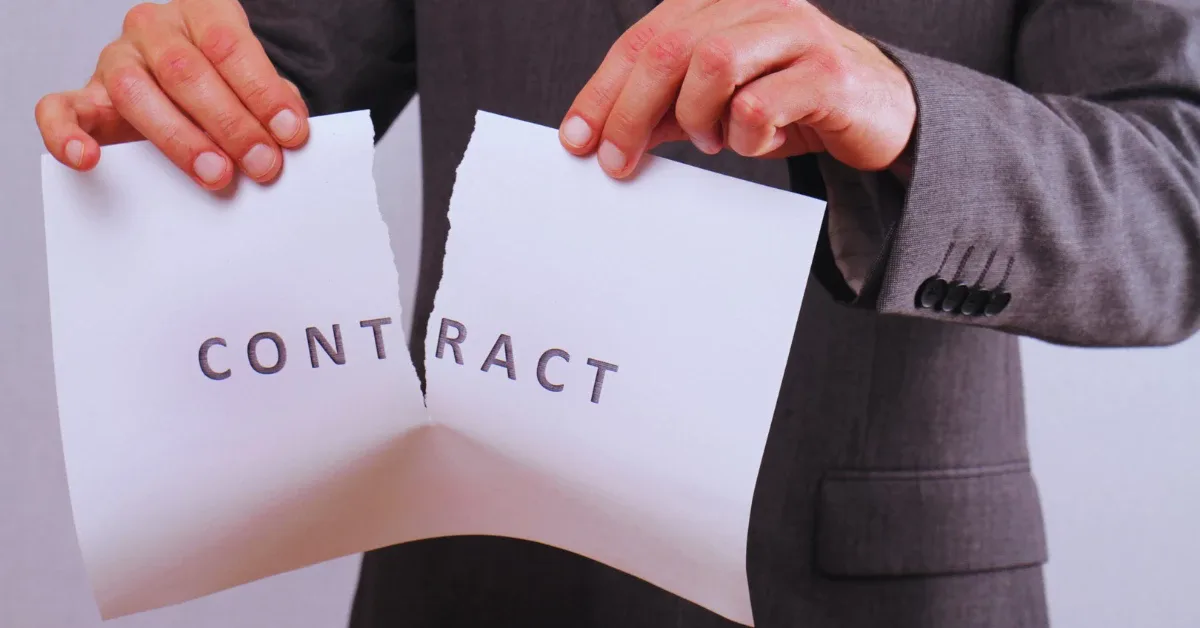

If a tenant breaches a contract, the landlord must provide written notice and an opportunity to fix the issue. Landlords may terminate the contract and evict the tenant if the issue persists. Breaching a lease agreement is a serious matter that can result in financial and legal consequences for both parties. Whether you are a landlord or a tenant, understanding the proper steps to take in the event of a breach can help you protect your rights and interests. We will discuss the common types of lease violations, how to handle breaches effectively and ethically, and what legal options are available to landlords and tenants. We’ll also explore some preventive measures that can help minimize the risk of future conflicts between landlords and tenants.

Tenant breach of contract is a serious issue that landlords must be aware of. When a tenant signs a lease agreement, they are agreeing to follow all the terms and conditions outlined in the contract. A breach occurs when the tenant violates any of the provisions in the agreement, which can include payment of rent, property damage, or breaking of any rules. As a landlord, it is vital to know how to identify tenant breaches of contract and take prompt action.
Identifying tenant breaches of contracts is crucial for landlords as it helps to prevent further violations and protect their interests.
Failure to act upon a tenant’s breach of contract could lead to a loss of rental income, property damage, legal disputes, and even eviction.
It is important for landlords to take action promptly whenever they notice a tenant breaching the lease agreement.
Early detection of a breach of contract can help landlords to take appropriate action and prevent potential legal battles or disputes in the future.
As a landlord, it is crucial to understand the different types of tenant breaches of contract, identify them promptly, and take appropriate action to mitigate the risks.
By following the tips mentioned above, you can ensure that your property is well-maintained and your interests are protected.

If a tenant has breached their contract, the first step is to review the lease agreement and the tenant’s obligations. Here are some key points to consider:
Once you’ve determined that the tenant has breached their contract, the next step is to notify them of the breach. Here’s what you need to know:
If the tenant has not remedied the breach by the deadline, it’s time to negotiate a resolution. Consider the following:
If all attempts to remedy the breach have failed, you may need to pursue legal action. Here are some key points to consider:
Remember that dealing with a tenant breach of contract can be complex, but by following these steps, you can ensure that you take the appropriate action.
As a landlord, you have several options if a tenant breaches the lease agreement. You can choose to communicate with your tenant, give them the notice to correct the violation or take legal action.
Yes, you can evict your tenant if they continue to violate the lease agreement even after receiving warnings or notices. However, you must follow the legal procedures for eviction in your state or country.
Read About: Should You Open Mail from Previous Tenants? Rental AwarenessSome common reasons for a tenant to breach a lease may include unpaid rent, unauthorized pets or occupants, property damage, or illegal activities on the property.
To prevent tenants from breaching the lease agreement, you should have a detailed lease agreement, conduct thorough tenant screenings, communicate effectively, and complete regular property inspections. It’s also important to respond appropriately to any violations or issues that arise.
As a landlord, dealing with a tenant that breaches a contract can be stressful and overwhelming.
However, it’s important to remain calm and follow the proper steps to protect your property and your rights.
By reviewing the contract, communicating with the tenant, and seeking legal advice if necessary, you can work towards resolving the situation.
Remember, prevention is key. A well-written and clear lease agreement can help prevent conflicts between you and your tenant.
Additionally, conducting thorough background and credit checks can help ensure that you choose responsible tenants.
By following these steps, you can minimize the risk of tenant breaches and maintain a positive and successful landlord-tenant relationship.
Stay informed and prepared, and you’ll be able to handle any challenges that come your way.